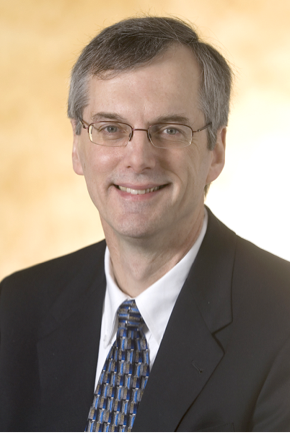

Main navigation | Main content

Professor Thomas Hoye has received the 2014 Minnesota Award from the Minnesota Section of the American Chemical Society (MN-ACS). The Minnesota Award was established in 1958 to honor section members who have made outstanding contributions to chemical research or in service to the profession.
"Tom Hoye's exceptional accomplishments as an educator and as a researcher make him richly deserving of the Minnesota Award," said William Tolman, chair of the Department of Chemistry. "His research achievements in the fundamental arenas of reaction and strategy development have impacted, broadly and profoundly, the field of organic chemistry. They embody the principles of pedagogy, scholarship, and intellectual curiosity in an exemplary way," he said.
While a major focus of Hoye's research is natural product chemical synthesis, one of the hallmark's of his research is its breadth. His research encompasses the development of new synthetic methods; the development of new nuclear magnetic resonance-based strategies for determination of absolute and relative configurations, including computational approaches; organometallic chemistry; polymer synthesis; development of sustainable materials from biorenewable resources; mechanistic organic chemistry; medicinal chemistry; spontaneous, non-enzyme-catalyzed events in the biosynthesis of natural products; and the development of new prodrugs and block polymer-based nanoparticles for drug and prodrug delivery.
Recently, member of Hoye's research group demonstrated that benzynes, arguably the most versatile of all the reactive intermediates in organic chemistry, can generally and practically be formed merely by heating appropriate triyne precursors. His group has termed this the hexadehydro-Diels–Alder (HDDA) reaction. They are also gaining new mechanistic insights about the ensuing, in situ trapping reactions, which include a number of unprecedented classes of transformations. They envision that this novel strategy for generating and trapping benzynes—HDDA cascades—will lead to new approaches to the development of useful new benzenoid compounds, including libraries to support drug discovery efforts.
Hoye has co-authored more than 190 scientific papers, and is the co-inventor of 11 patent applications. Since joining the University of Minnesota chemistry faculty in 1976, he has led a highly productive and well-funded research program, bringing millions of research dollars to the university and his laboratory. In addition to being a top organic chemist, Hoye is also an outstanding teacher and mentor, working with both undergraduate and graduate students. He holds both of the University of Minnesota's two highest teaching awards—the Award for Outstanding Contributions to Post-Baccalaureate, Graduate, and Professional Education (received in 1999, the inaugural year that distinction was given), and the Morse-Alumni Award for Excellence in Undergraduate Teaching (2007). Hoye has worked with 140 undergraduate research students, advised the thesis research of 77 doctoral and 13 master students, and hosted dozens of post-doctoral associates and visiting scientists.
Hoye will be honored at the MN-ACS annual awards dinner, Tuesday, May 13. Previous University of Minnesota Minnesota Award winners include professors Izaak Kolthoff, Robert Brasted, William Parham, Paul Gassman, Edward Leete, Wayland Noland, Donald Truhlar, and Timothy Lodge.